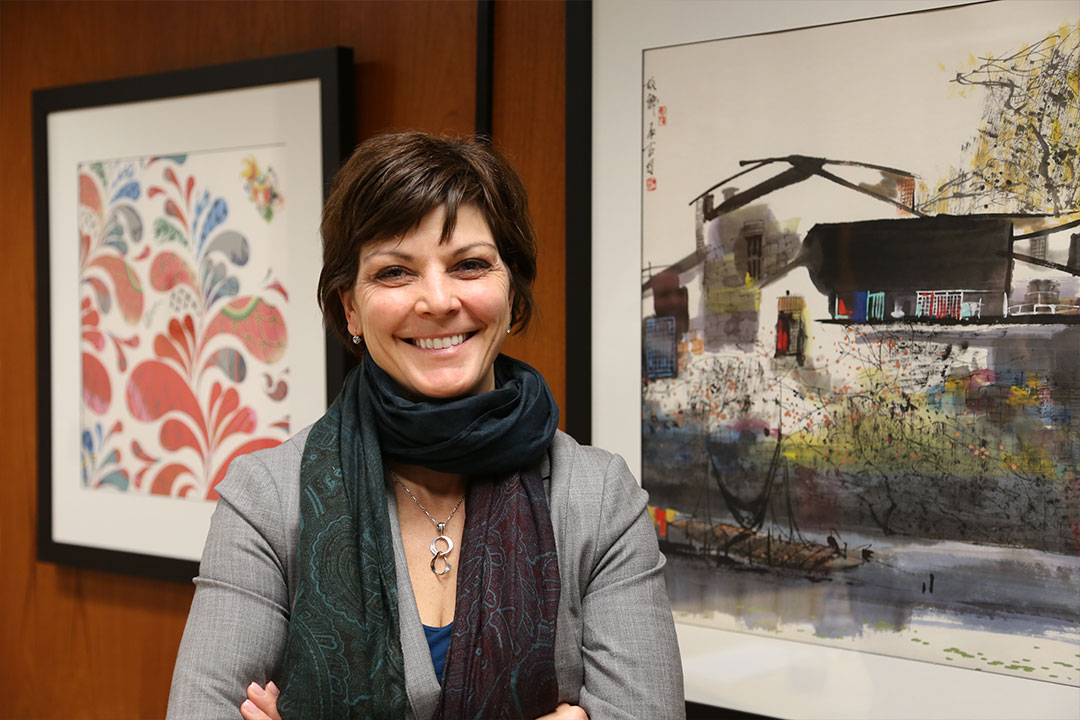
International opportunities
Eight years ago, the University of Saskatchewan Department of Educational Administration formalized a longstanding, but until then informal, partnership with Tianjin Normal University (TNU) in Tianjin, China.
By HenryTye GlazebrookThe purpose was to simplify TNU student transfer credits, promote student study abroad opportunities, and ignite faculty teaching and research exchange.
Now, well into their second agreement, the partnership is gaining momentum—in particular at the graduate level—and the College of Education leadership group is working to take what it has learned and reproduce similar agreements with several other Chinese universities in the coming years.
“This work is long overdue, and its growing importance in our priorities and those of the U of S as a whole is reflected in its inclusion in one of our associate deans’ portfolios,” said College of Education Dean Michelle Prytula.
“Now we’re looking at establishing similar agreements through our relationships at Beijing Normal University, Beijing Institute of Technology, Beijing Culture and Language University, and Yunnan Agricultural University (in Kunming). We have learned much from TNU about what students need and how our agreements are valued—and we are becoming more confident in what we’re doing.”
These agreements are just one small part of an expansion of internationalization across the U of S, the overall intention being to diversify the student experience and the student body, to increase research opportunities in other countries and to learn from others’ perspectives and share our own.
The goal is to increase the number of international students in the college from about 10 per cent at the graduate level to 30 per cent, as well as up to 10 per cent at the undergraduate level.
While there are partnerships in place, and others being planned with countries from across the globe, Prytula has lately been focusing her efforts on bringing Chinese students to the U of S.
Of the more than 2,400 international students on campus, nearly half come from China. In December, Prytula joined arts and science Interim Dean Peta Bonham-Smith as part of a small delegation visiting the country to learn more about why their students are investing in the U of S, and to explore further partnerships to continue to increase those numbers.
“When the Confucius Institute asked if we wanted to come to China and learn more about the country, I thought it was a great opportunity to take our programs and the potential that we have, and meet with a variety of universities, while at the same time fulfilling our Confucius Institute responsibilities through our annual meeting with Beijing Institute of Technology board members,” Prytula said.
The delegation’s work revealed several key opportunities available to U of S students, both local and international alike.
Using the College of Education as an example, Prytula said potential plans include more student internships abroad, the ability for students to attend some courses at Beijing Normal University, increasing the number of faculty exchanges between institutions and even contemplating the future possibility of students taking U of S programming offered through Chinese universities—all of which she said were more than exploratory, but still very much in the early stages of planning.
Past connections with international partners have already led to changes within the college.
“In our former undergraduate program, you simply couldn’t accept international students at year three for reasons related to certification as a teacher following graduation,” Prytula said, adding that such requirements have changed with the college’s direct admission option. “Now we are looking at our admissions requirements, noticing roadblocks that we hadn’t noticed before.”
Prytula stressed that the goal is not solely focused on increasing student numbers from China. Rather, international initiatives expand the college’s understanding of how to make the U of S an attractive destination for undergraduate and graduate students from all over the world.
“I think societies do better when they consider multiple points of view and perspectives,” she said. “Universities are places where knowledge is constructed and advanced. For me, it’s not reasonable to imagine a strong university without it.”

